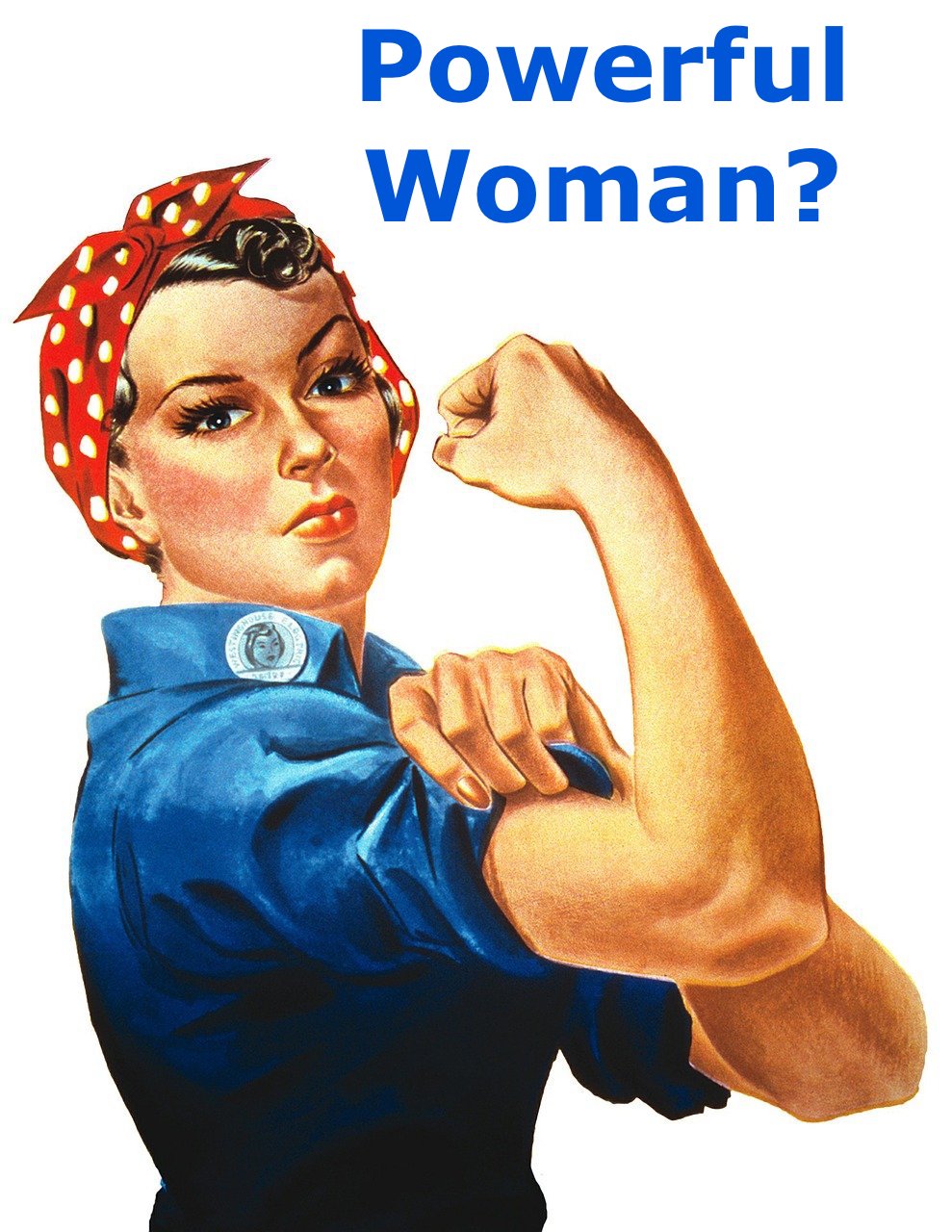“A strong woman who can find? Her worth is far above jewels.”
~Proverbs 31:10
During World War II, Rosie the Riveter became an iconic figure of the strong woman. The seventeen-year-old Geraldine Doyle posed for a picture that would become a cultural phenomenon, fueling the feminist image and agenda of what women should be: strong, independent women. Doyle didn’t really embody the legend surrounding her image. She only worked for the metal stamping company for two weeks, afraid she would mangle her hands as did her predecessor. Crippled hands would be disastrous for her passion as a cellist. However, the myth bound up in Rosie the Riveter gained a life of its own, becoming something of a foundational story for second-wave feminists.
For decades, women have built their lives on this myth of the strong, independent woman. “A woman needs a man like a fish needs a bicycle,” Gloria Steinem popularized. To confess the need of a man or to do anything for a man’s pleasure is seen as a betrayal of feminine strength. The strong, independent woman is the boss girl, the belligerent, obnoxious, unsubmissive, anything-you-can-do-I-can-do-better woman. She runs companies, has a lucrative career, or is the bulked-up athletic type. To explain away the fact that men aren’t attracted to these types of women, women will say, “Some men just can’t handle a strong woman.”
Is that the case? Are good men not attracted to strong women? Well, it depends on what you mean by strong.
Proverbs 31:10, the beginning of the poetic description of Lady Wisdom, says that she is strong. Translations translate the word as “excellent” (ESV, NASB) or “virtuous” (NKJV, KJV), which are both fine. But the fundamental meaning of the word is “strong.” Solomon (possibly recording the words of his mother) tells his son that a strong woman is precisely the woman who will make a good wife. Godly men aren’t frightened by strong women (or shouldn’t be). Men should be seeking strong women and helping their wives to become stronger. This strength, however, is defined by God’s design for the woman, which rarely, if ever, lines up with what twenty-first-century American feminism means by “strong.”
At the heart of the poem concerning Lady Wisdom, it is said that her husband is known or acknowledged in the gates when he sits among the elders of the land (31:23). This verse looks like an unwelcomed intrusion to a beautiful portrait of a woman. However, it fits perfectly. The structure of the poem draws a focus on this verse. Everything the woman is before and after this verse is, in some sense, aimed at her husband being exalted. She lives for him and helps him build his household. She loses her life in service to her husband, and it is through this that she finds her life.
Her husband needs her physical, mental, emotional, intellectual, and moral strength. He needs her capabilities, not merely in having babies but also in having skills and even being valiant. The word translated “strong” is used elsewhere in military contexts. Couple this with the fact that in 31:11 Solomon incorporates the military image of the “spoils” of victory gained through her (“gain” can be translated “spoils,” that which is collected after a battle), and you see that she is fighting a war with him. She fights like a woman, not like a man, but she fights, nevertheless. She uses the “weapons” of domesticity to help him fight the battle that began in Genesis 3. While he is pushing forward in the world, fighting the ground and its thorns and thistles, taking up the sword against the serpent and his seed, she is bearing the seed that will crush the serpent’s head, using nurture and tent pegs (Jael) as well as millstones (unnamed woman in Judges 9) to participate in the war. She is strong even though she is the weaker vessel compared to the man (1 Pt 3:7). She is strong because she operates as a woman, not as a weakened version of a man. She doesn’t care to be the “first woman to do X,” following a man’s exploits fifty to one hundred years earlier as if what makes her strong is to be able to do everything a man can do. She is a strong woman and content with her feminine role before God in the world.
These women are rare jewels, meaning they are difficult to find. Why is this? Since the fall, women have had the sinful tendency to want to be strong, independent women, to rule over men and not to follow them and live for them (Gen 3:16). These sinful impulses are grasping at glory illegitimately. This reflects impatience and an unwillingness to submit to God’s path to glory. The strong woman in Proverbs 31 uses all her strength to exalt her husband. However, when he is exalted, she is also exalted. The gates where her husband sits and rules the city, respected among the elders, are the same gates where she and her works will be praised (31:31).
The strong woman lays down her life for the lives of others, using her strength for her husband and children. She loses her life to find it. Does that sound like a familiar pattern?













